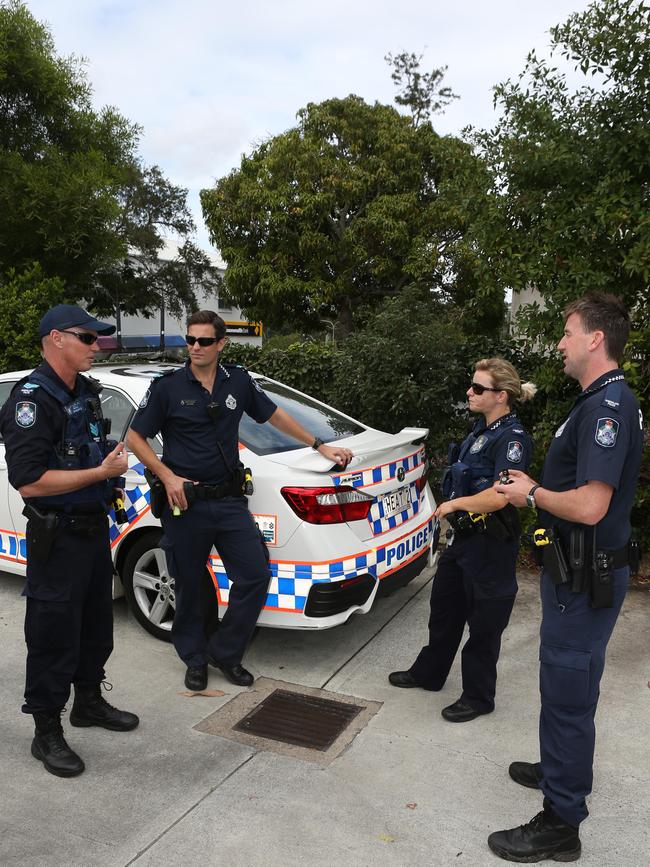QPS exercises right to remain silent on RAP review
QUEENSLAND Police’s Rapid Action Patrol group continue to operate in a veil of secrecy after refusing to release a publicly funded report on the effectiveness of the mobile unit.
Crime and Court
Don't miss out on the headlines from Crime and Court. Followed categories will be added to My News.
THE Queensland Police have refused to release a publicly funded report evaluating the effectiveness of the Rapid Action Patrol group amid plans to expand on the Coast and across the state.
The Bulletin submitted a Right To Information request to the QPS for the 175-page report, but was denied on a number of grounds, namely that it wasn’t in the public interest to release the report.
The report by Griffith University looked at the effectiveness of the RAP model since its inception in 2014 and would determine whether it would continue on the Gold Coast, expand across the state or close down altogether.
It’s believed the report interviewed officers from across the state involved in either the squad or at a senior level, looked at its financial viability, arrest rates and its success.

Sources have told the Bulletin the report was less than positive, with a number of recommendations to change up the model, which are still under “consideration” by the QPS.
“If it (RAP) is such a success in its current form, what have we got to hide?,” a source told the Bulletin.
Opposition leader Deb Frecklington said it was more secrecy from the Palaszczuk Government.
“This is yet another example of the culture of secrecy under Annastacia Palaszczuk,” she said.
“Frontline police resources are crucial in the fightback against crime and Gold Coast residents deserve to know what Labor are hiding.
“While this report remains a secret, Gold Coast residents are right to be nervous.”

It’s understood Police Commissioner Ian Stewart has banked on the success of the RAP to expand the hub policing model across the state.
A new site has been flagged for the Gold Coast RAP away from their current location at Varsity Lakes, as well as a site being purchased in Cairns to potentially house a new RAP group, although it’s understood the outcome of this review was weighing on the future of a Cairns squad.
GET A NEW TABLET WHEN YOU SUBSCRIBE TO THE GOLD COAST BULLETIN
In a two-sentence statement, Police Commissioner Ian Stewart said he was not involved in the decision to deny the report. “The Commissioner was not involved in considering the Right to Information (RTI) application,” the statement read.
He declined to answer whether the refusal of the RTI was in line with the QPS position of being transparent and accountable.
Although the Commissioner was not directly involved in the RTI process, his office was.
In the reasoning behind the denial, Information Rights Officer Haley Bradshaw states, “I am instructed by the Commissioner’s Office that the report is currently under consideration”.

And while under consideration the QPS don’t want the report to be made public, which they claim could interfere with their ability to make policy changes.
“Central to this public interest is maintaining the ability of the QPS to ‘explore and then abandon policy positions without those deliberations being the subject of later scrutiny’.
“In this instance, I consider that the public interest considerations favouring nondisclosure outweigh the public interest considerations in favour of disclosure, in so far as the document is a deliberative process document as it comprises ‘opinion, advice or recommendation that
has been obtained, prepared or recorded in the course of, or for, the deliberative processes
involved in the functions of government.
“The release of the document at this stage of deliberations would have a negative effect on the QPS’s ability to consider options in an objective manner and to achieve an outcome that is beneficial for the Queensland community, has contributed to these factors outweighing the disclosure factors.
Furthermore, I consider that the potential public interest harm discussed above is of
sufficient weight to outweigh the strong public interest in providing the community with
timely information about important government decisions.”


